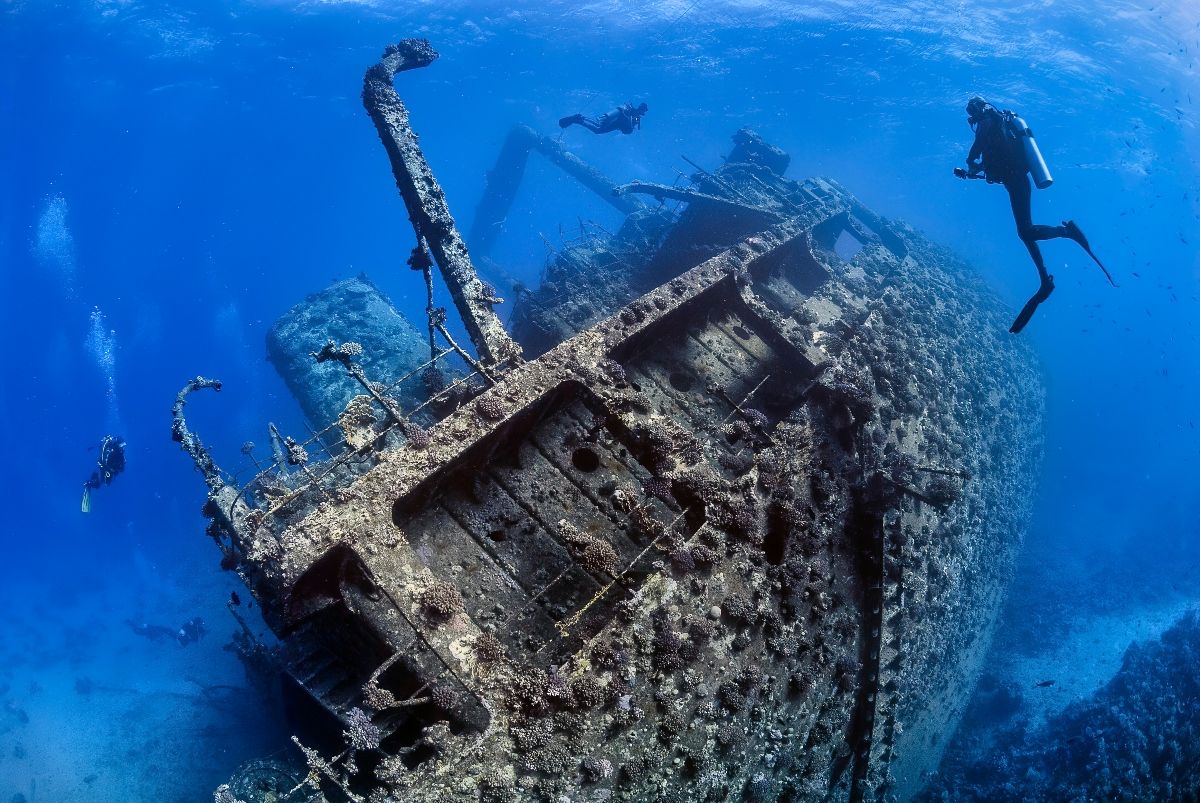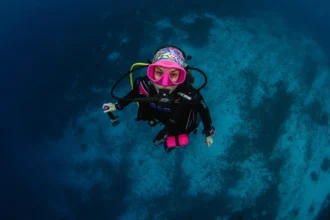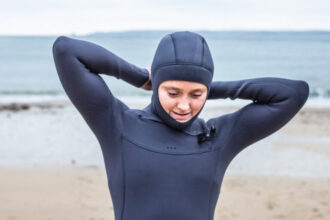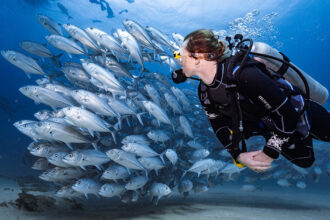When it comes to exploring the underwater world, many adventure seekers and scuba enthusiasts often ask: how deep can humans dive? Understanding the limits of human diving, both with and without equipment, is crucial for safety and maximizing the thrill of underwater exploration. In this comprehensive guide, we’ll dive into the science, records, and practical tips to help you understand human diving capabilities and push the boundaries safely.
Understanding Human Diving Limits
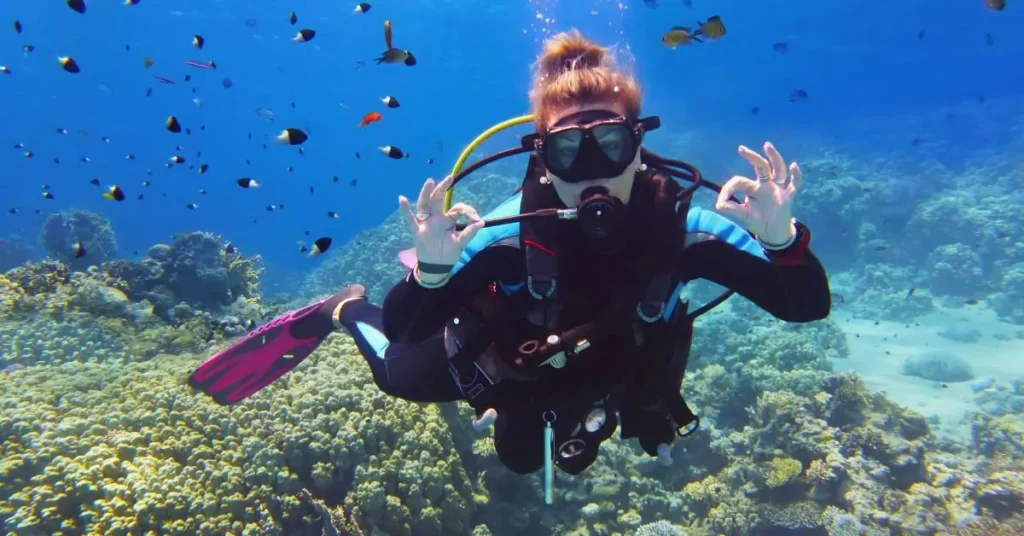
Table of Contents
Diving depth is determined by multiple factors, including physical fitness, lung capacity, and experience. The human body faces increasing pressure with every meter descended underwater. For every 10 meters of water, the pressure increases by roughly 1 atmosphere (14.7 psi). This means that a dive to 100 meters subjects the body to 11 times the pressure experienced at sea level.
There are two main types of diving: freediving (diving without equipment) and scuba diving (using specialized gear). Freedivers rely solely on their breath-holding ability and physical conditioning, while scuba divers benefit from equipment that allows them to descend deeper safely. The depth limits differ significantly between these two methods, and understanding them is critical for all divers.
Record-Breaking Human Dives
Humans have continually pushed the boundaries of underwater exploration. Here are some record-breaking achievements that demonstrate the incredible capabilities of trained divers.
Deepest Freedive Ever
The deepest freedive without equipment was achieved by Herbert Nitsch, an Austrian freediver, who descended an astounding 214 meters (702 feet). Freediving to such depths requires extraordinary lung capacity, mental focus, and years of training. Without proper training, attempting deep freedives can be extremely dangerous due to risks like hypoxia and shallow water blackout.
Deepest Scuba Dive Ever
Scuba divers, equipped with specialized gear and breathing mixtures, have reached depths far beyond what humans can achieve with breath alone. In 2014, Ahmed Gabr, an Egyptian diver, set the record for the deepest scuba dive ever at 332.35 meters (1,090 feet). This feat required meticulous planning, decompression stops, and careful management of oxygen and nitrogen levels to avoid toxicity and decompression sickness.
How Pressure Affects Humans Underwater
Pressure is the biggest limiting factor for deep diving. Every 10 meters of depth adds roughly 1 atmosphere of pressure. At 100 meters, divers experience 11 atmospheres, which compresses the lungs, sinuses, and air spaces in the body. Excessive pressure can lead to serious conditions, including barotrauma and nitrogen narcosis.
Key points to note:
- Before 10 meters: Most recreational divers feel little effect, making shallow dives safe for beginners.
- 10–40 meters: Nitrogen absorption increases, requiring slower ascent and proper safety stops.
- Beyond 100 meters: Only highly trained professionals with specialized equipment can dive safely.
Diving Safely Without Equipment
Freediving is an incredible way to explore underwater without relying on gear. However, the human body has strict limits. Most average individuals can safely freedive to 10–20 meters, while trained freedivers can reach depths of 50–100 meters. Beyond this, the risks increase exponentially.
Tips for safe freediving:
- Always dive with a buddy.
- Practice proper breath-holding techniques.
- Gradually increase depth over time.
- Learn proper equalization to protect your ears and sinuses.
Diving With Gear and Oxygen
Scuba diving allows humans to explore depths beyond their natural limits. With oxygen tanks and breathing mixtures, divers can descend hundreds of meters safely. However, deep diving requires careful management of risks, including oxygen toxicity, nitrogen narcosis, and decompression sickness.
Tips for diving with gear:
- Use mixed gases for deeper dives.
- Plan your dive and adhere to decompression schedules.
- Monitor air supply and depth constantly.
- Train with certified instructors before attempting extreme dives.
Tips for Adventure Seekers and First-Time Divers
Whether you are an experienced scuba diver or a first-time adventurer, these tips will enhance your underwater experience while keeping you safe:
- Choose certified dive centers: Proper training is essential.
- Invest in quality equipment: Reliable gear can save lives.
- Understand your limits: Never push beyond your comfort level.
- Explore the world’s best dive spots: Check out our guide on Best Scuba Diving in the World for inspiration.
- Stay physically fit: Good health improves breath-holding and endurance.
Common Questions About Human Diving Depth (FAQ)
1. How deep can a person dive before being crushed?
The human body is incredibly resilient but has limits. Without equipment, most people can dive safely up to 10–20 meters. Trained freedivers can reach 50–100 meters, while specialized scuba divers can exceed 300 meters using mixed gases and decompression techniques. Beyond these limits, extreme pressure can cause barotrauma or crush air-filled cavities in the body.
2. What is the deepest depth a human has dived?
The deepest recorded scuba dive was by Ahmed Gabr at 332.35 meters (1,090 feet). For freediving, Herbert Nitsch achieved 214 meters (702 feet) without any equipment. These records required extensive preparation, advanced techniques, and strict safety protocols.
3. Can a human survive 1000 feet underwater?
Surviving 1000 feet underwater is only possible with specialized equipment, breathing gases, and decompression plans. Without such measures, the extreme pressure would be fatal. Scuba divers approaching these depths rely on mixed gases like trimix to prevent oxygen toxicity and nitrogen narcosis.
4. How deep can humans dive underwater?
Human diving depth depends on the method used. Freedivers may safely reach 50–100 meters, while scuba divers with proper training and equipment can exceed 300 meters. Extreme depths require careful planning and safety measures.
Conclusion
The question “how deep can humans dive” is fascinating, revealing both the incredible potential of the human body and the importance of safety. Whether you are a first-time diver, an adventure seeker, or a seasoned scuba enthusiast, understanding your limits and using the right equipment is essential. By following proper training, using high-quality gear, and exploring the world’s best dive sites, you can safely experience the thrill of deep diving. Remember, the ocean’s depths are vast and mesmerizing — dive smart and enjoy every moment.
